Reading Non-Fiction Worksheets for Ages 3-9
96 filtered results
-
From - To
Discover our engaging Reading Non-Fiction Worksheets designed for children aged 3-9, perfect for sparking curiosity and promoting critical thinking! Our carefully crafted worksheets encourage young learners to explore a variety of non-fiction topics, enhancing their reading comprehension and vocabulary. With age-appropriate activities, including fun fact-finding missions and informative texts, kids will develop essential literacy skills while gaining knowledge about the world around them. These resources are ideal for classroom settings or home study, ensuring an enriching learning experience. Start your child's exploration of non-fiction today and watch their confidence and understanding grow! Perfect for little explorers eager to learn!
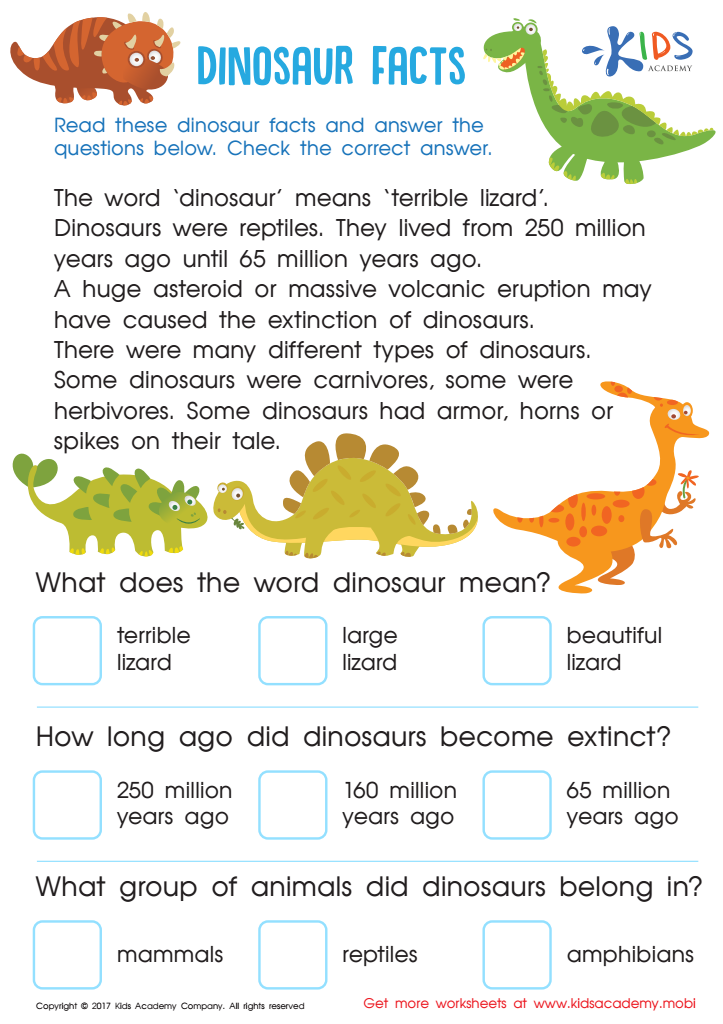

Dinosaur Facts Worksheet
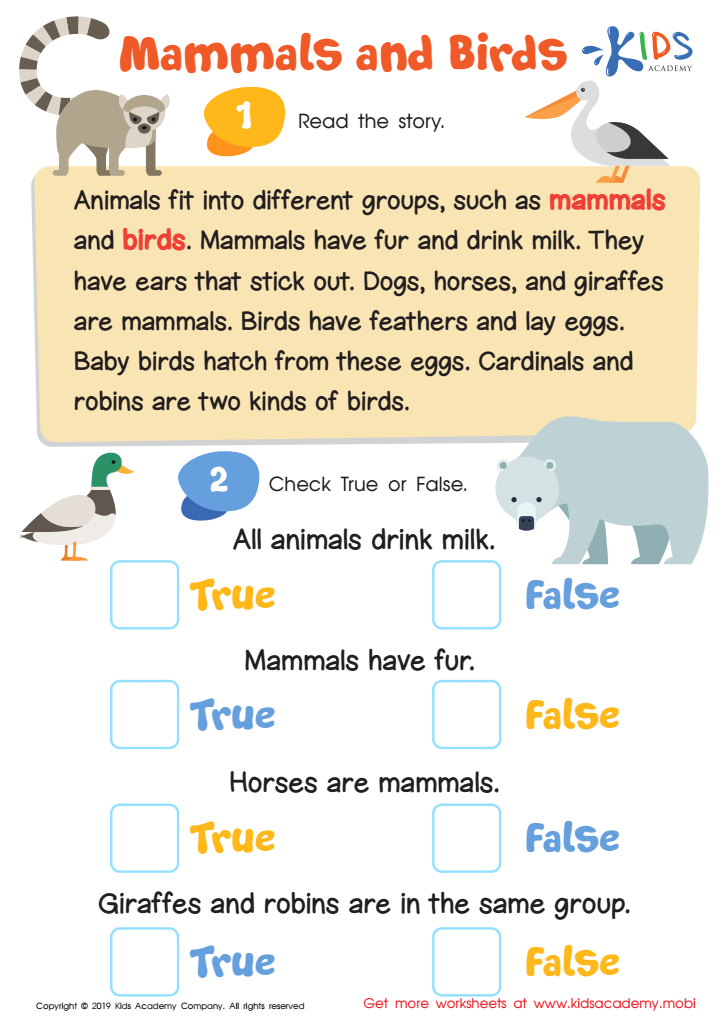

Mammals and Birds Worksheet
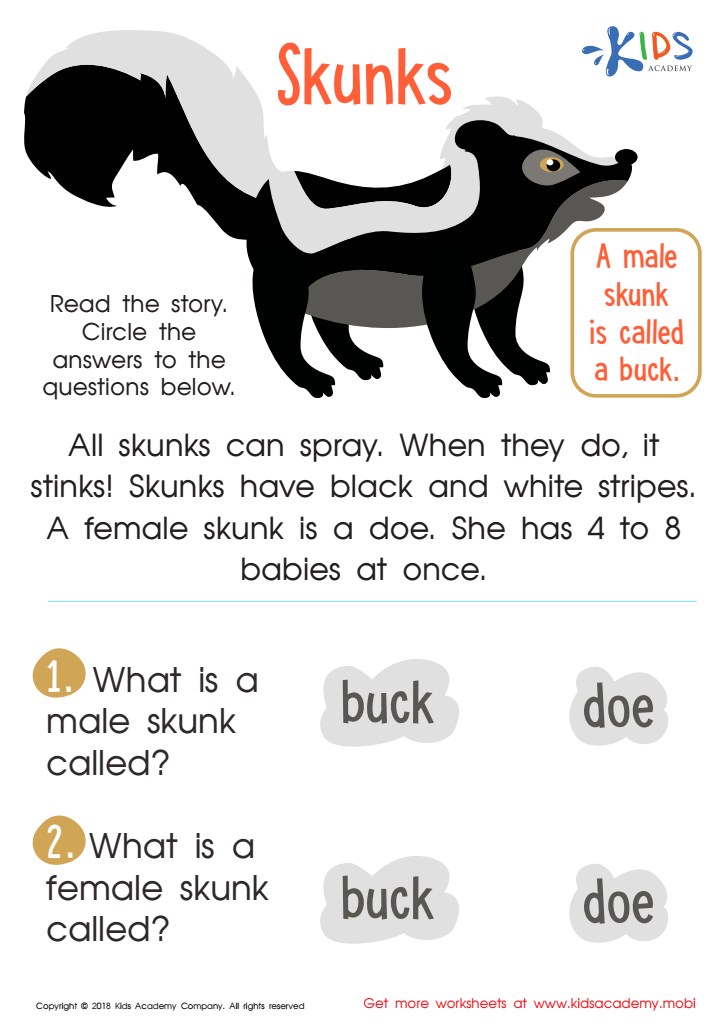

Skunks Worksheet
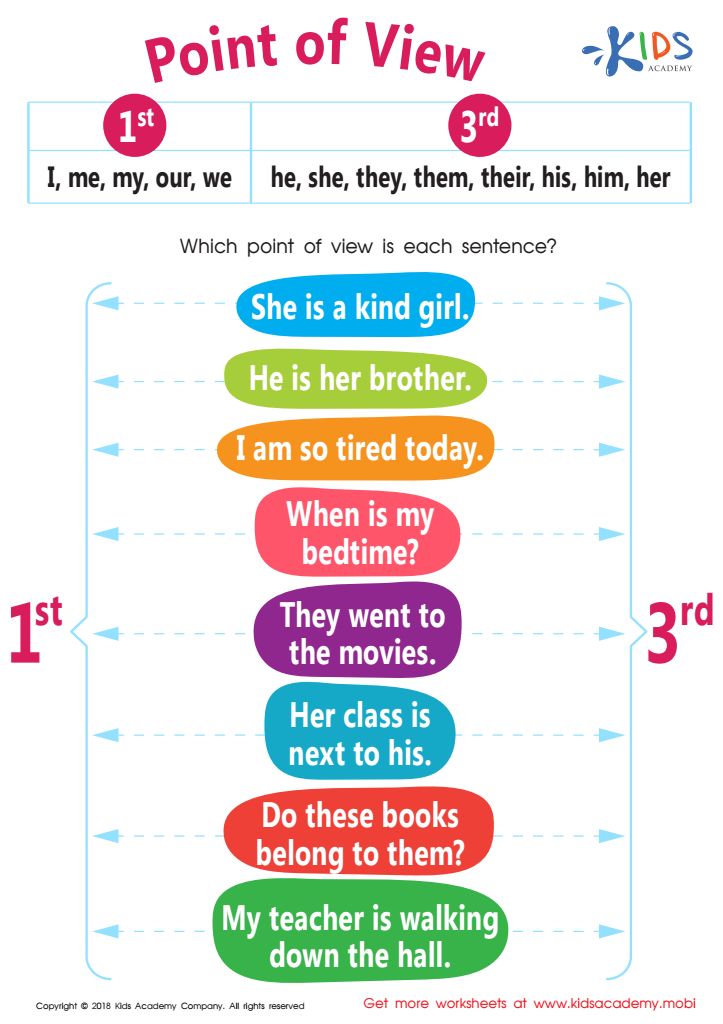

Point of View Worksheet
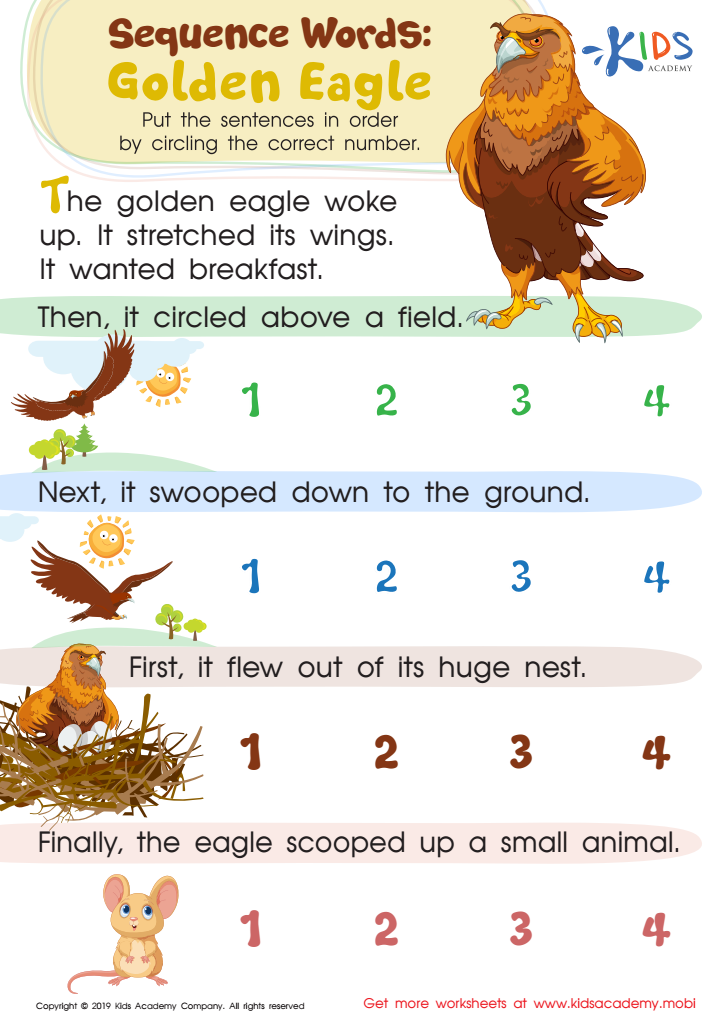

Sequence Word Eagle Worksheet
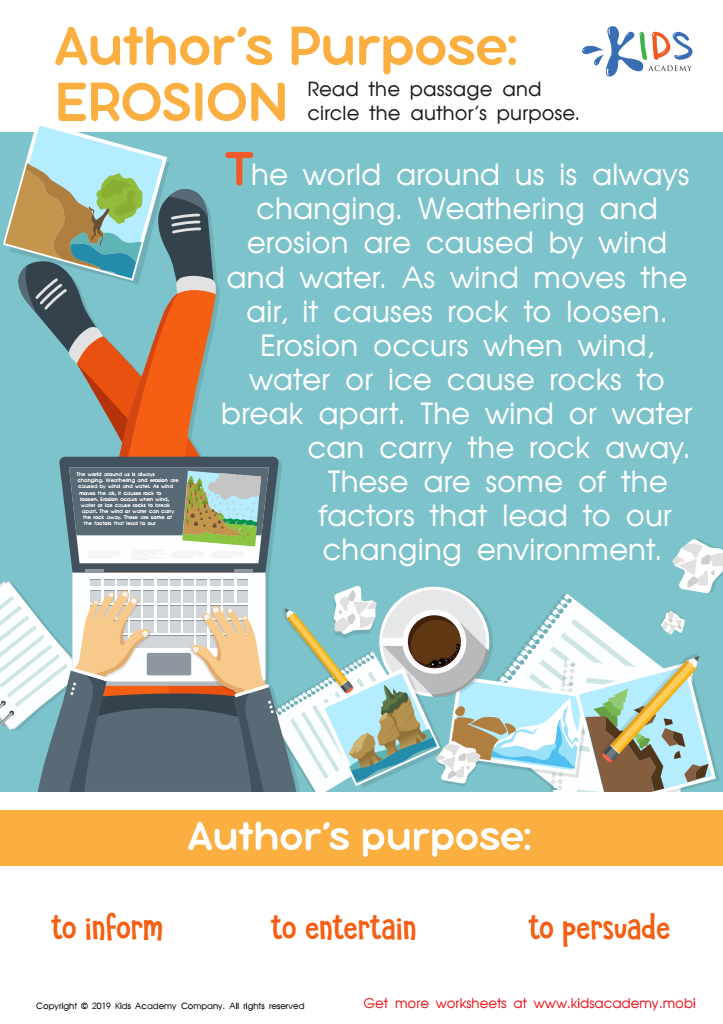

Author’s Purpose: Erosion Worksheet


White House Worksheet
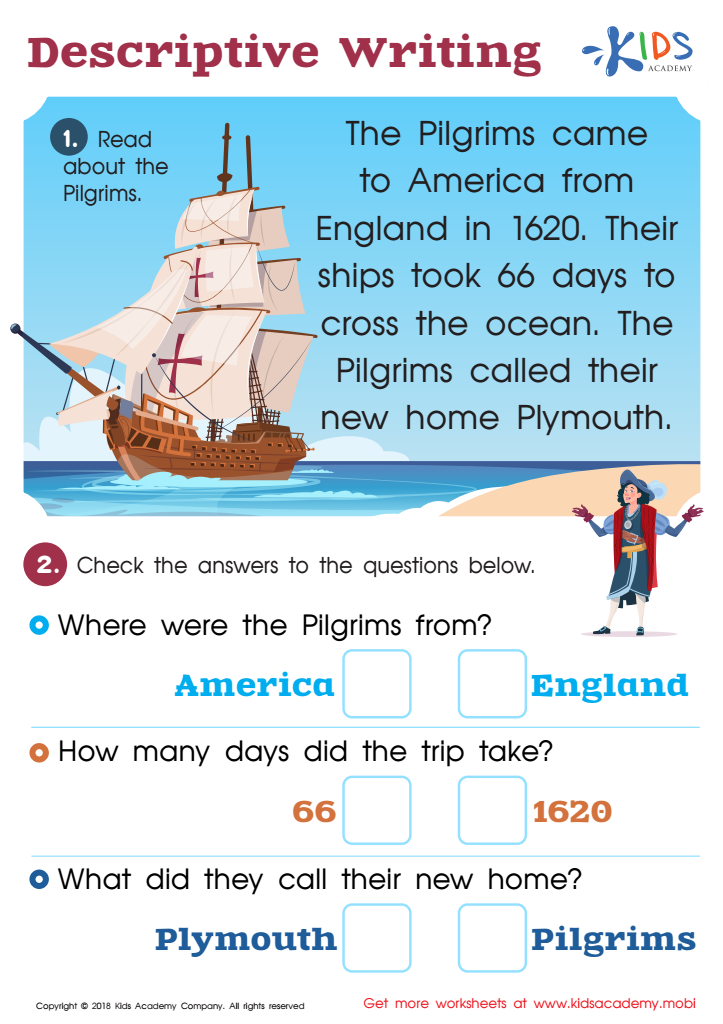

Descriptive Writing Worksheet: Part 1
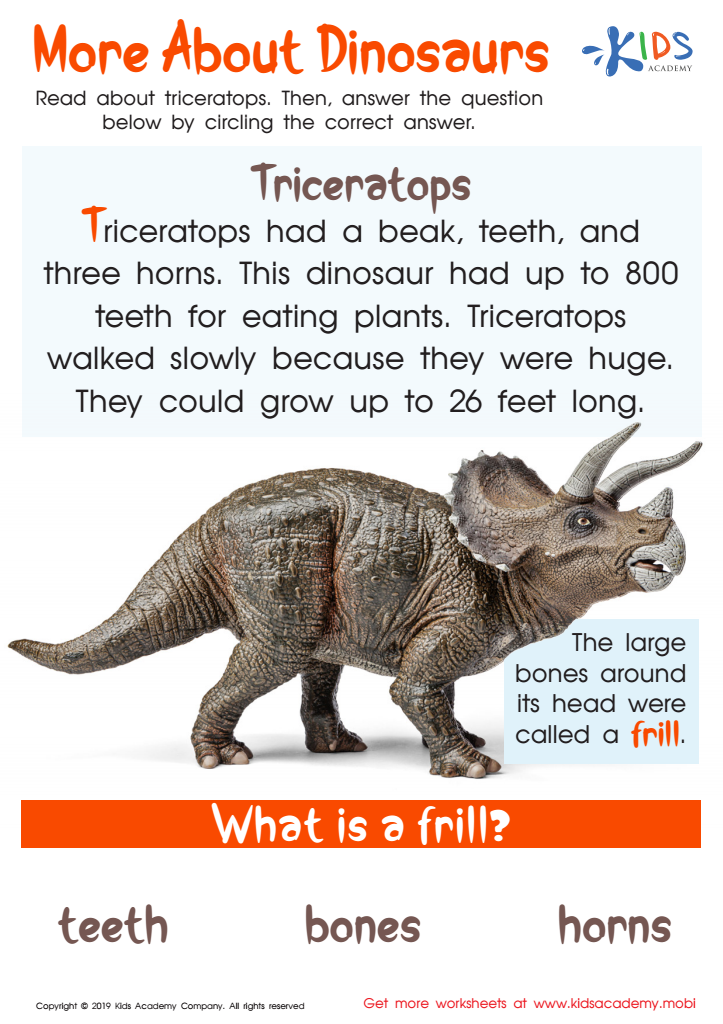

More About Dinosaurs Worksheet
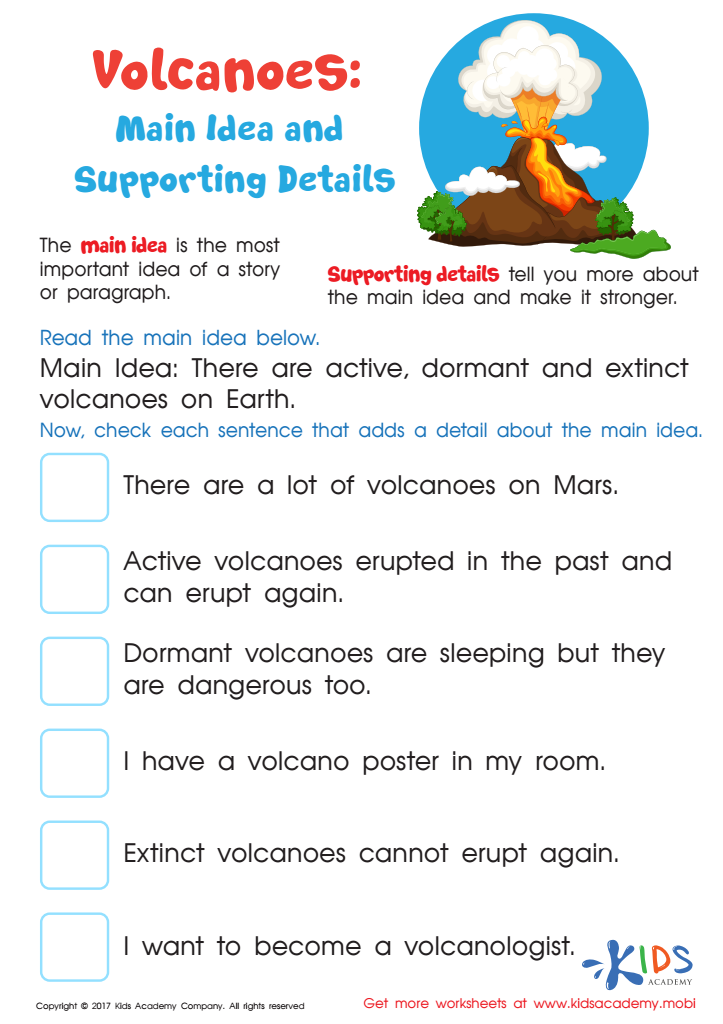

Volcano Facts Worksheet
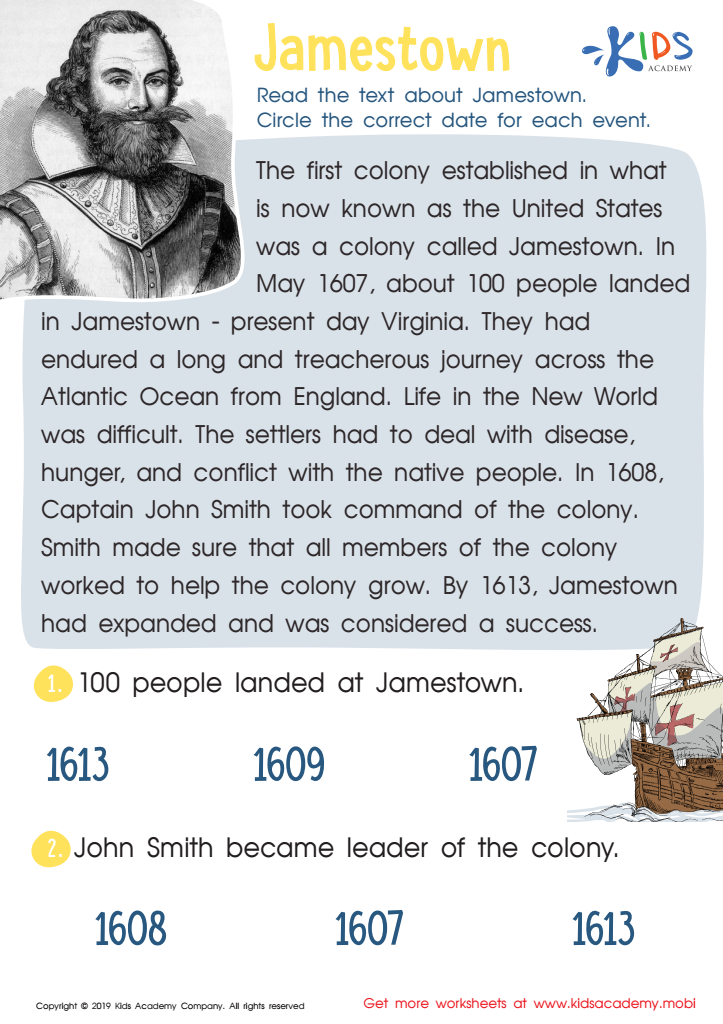

Jamestown Worksheet
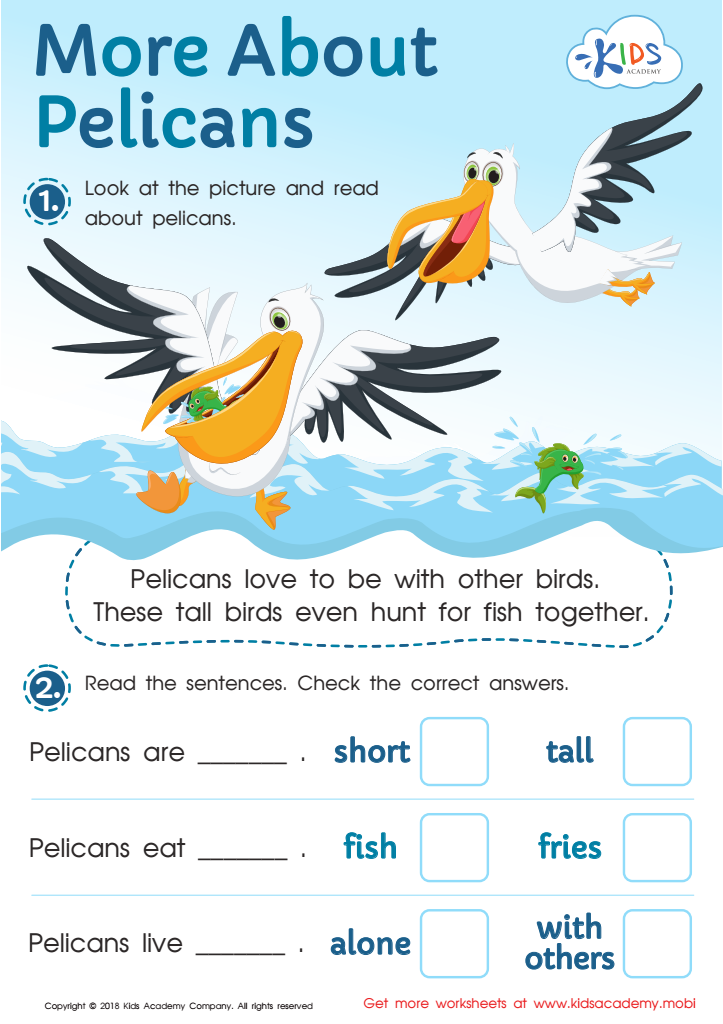

More About Pelicans Worksheet
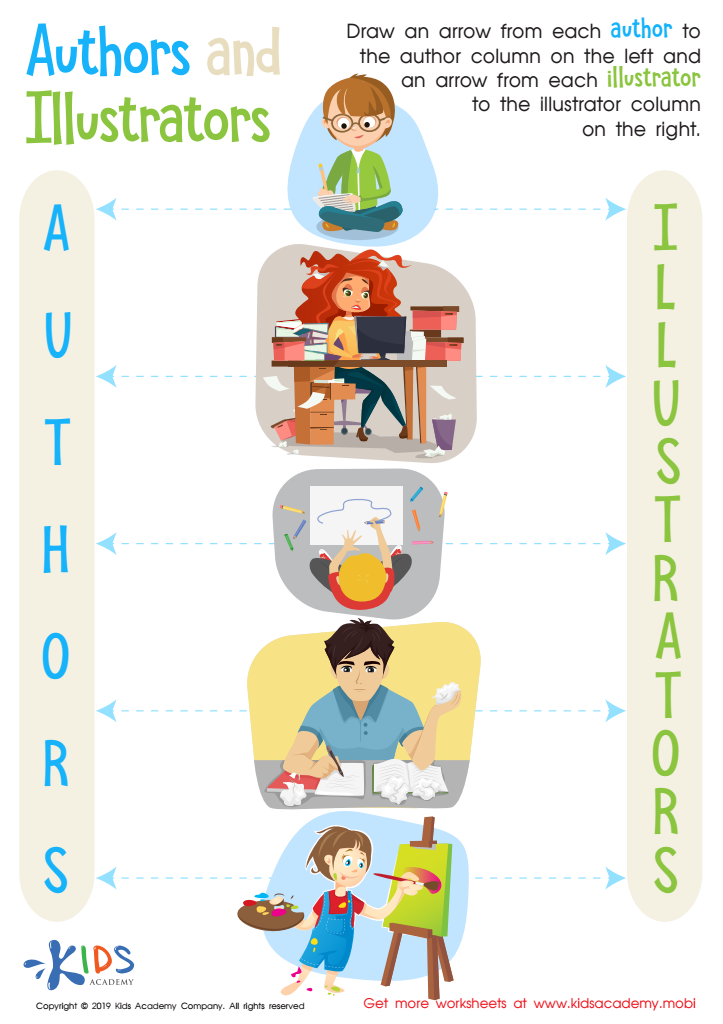

Authors and Illustrators Worksheet
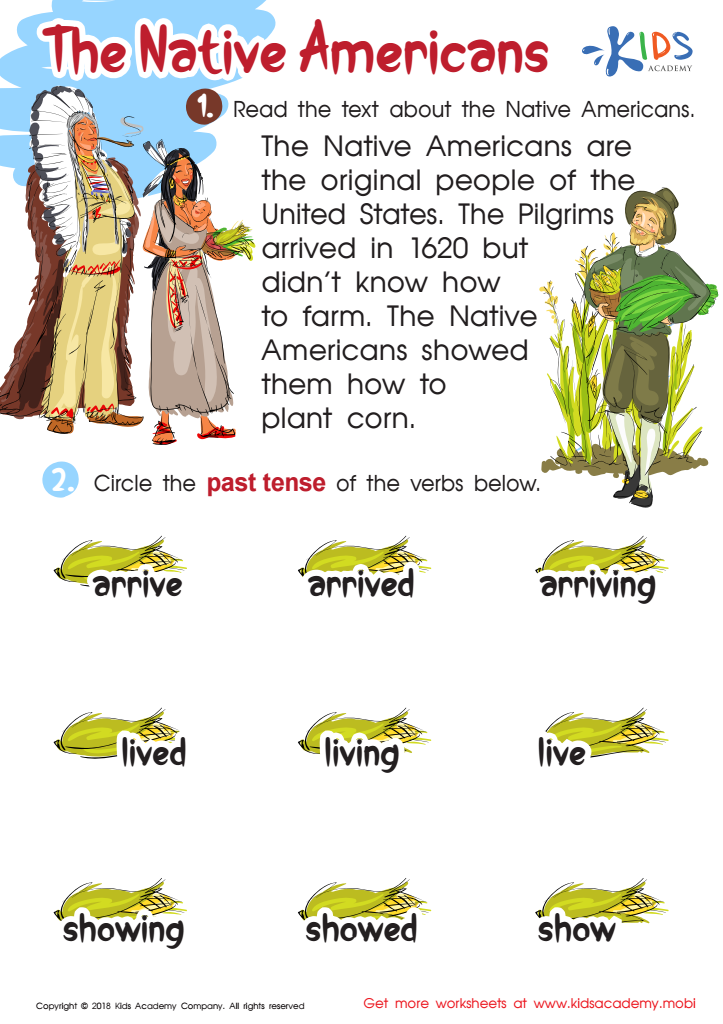

The Native Americans Worksheet
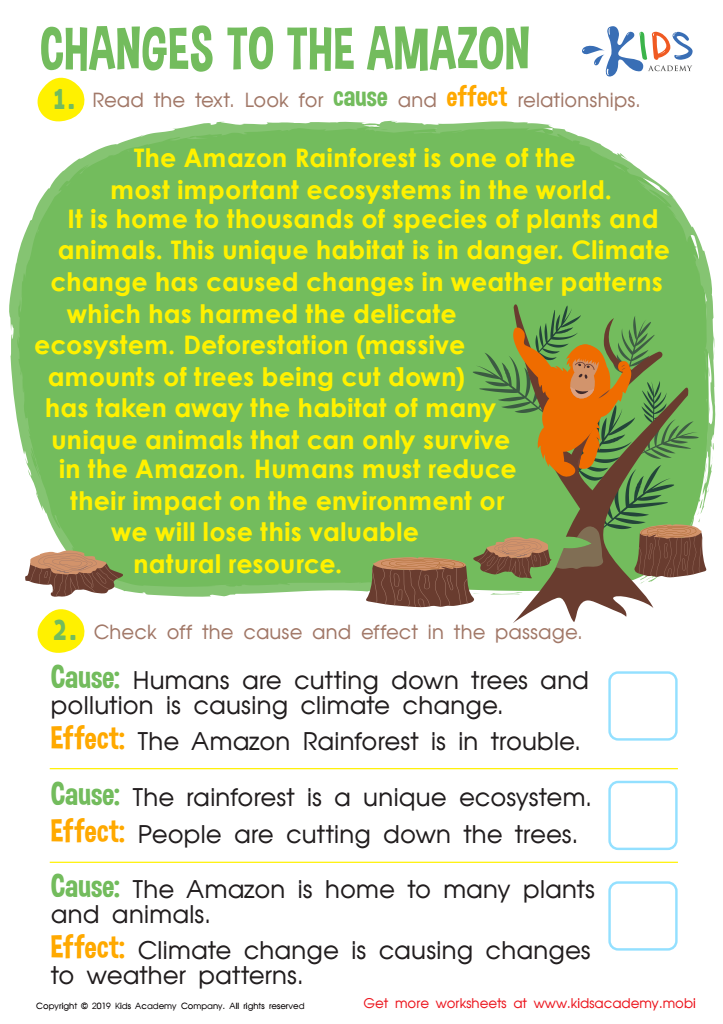

Changes to the Amazon Worksheet
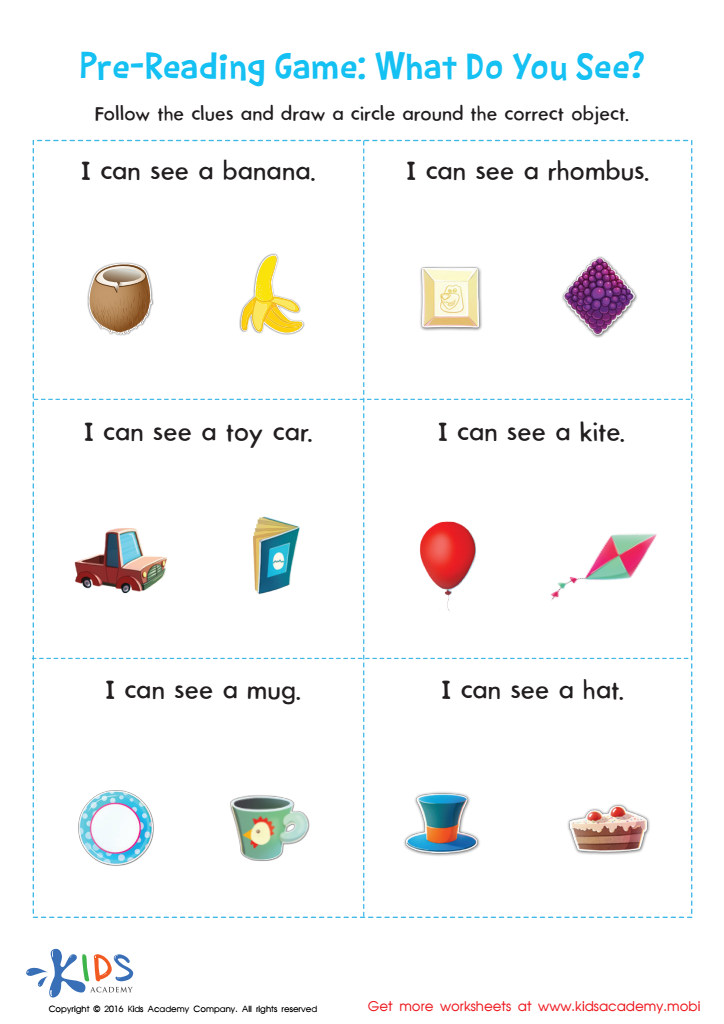

Pre–reading Worksheet: What Do You See?
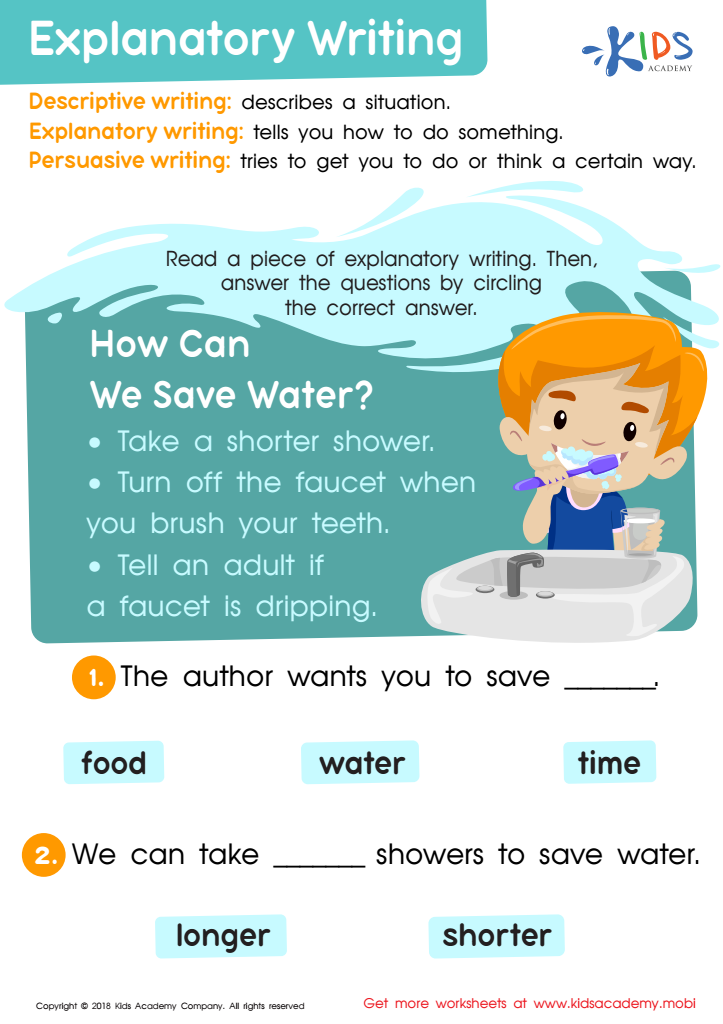

Explanatory Writing Worksheet
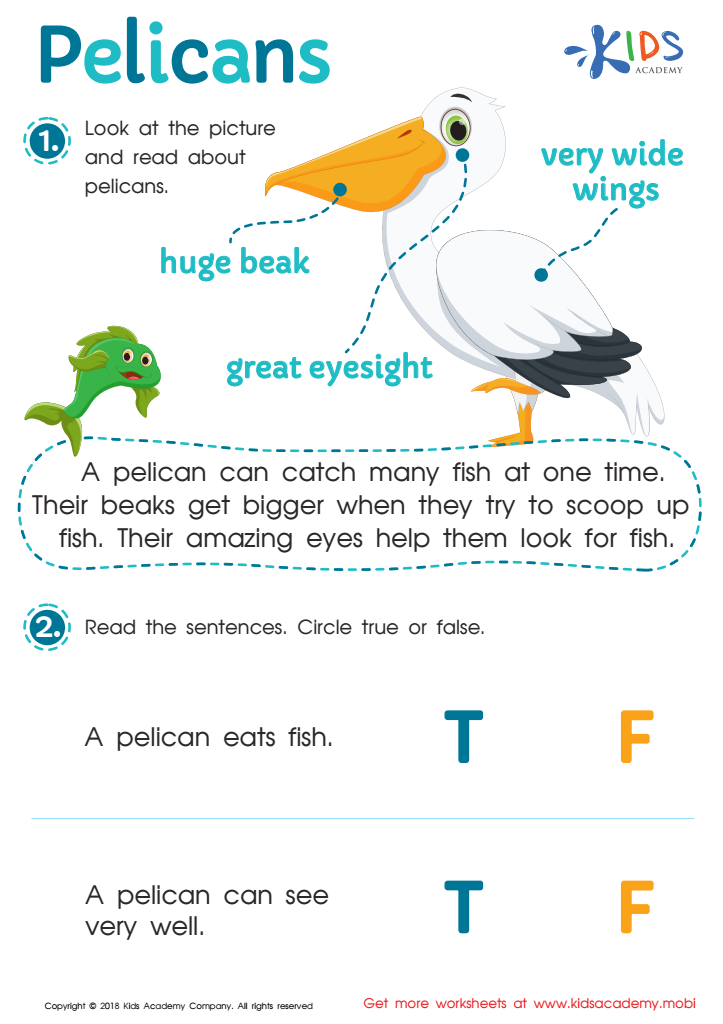

Pelicans Worksheet
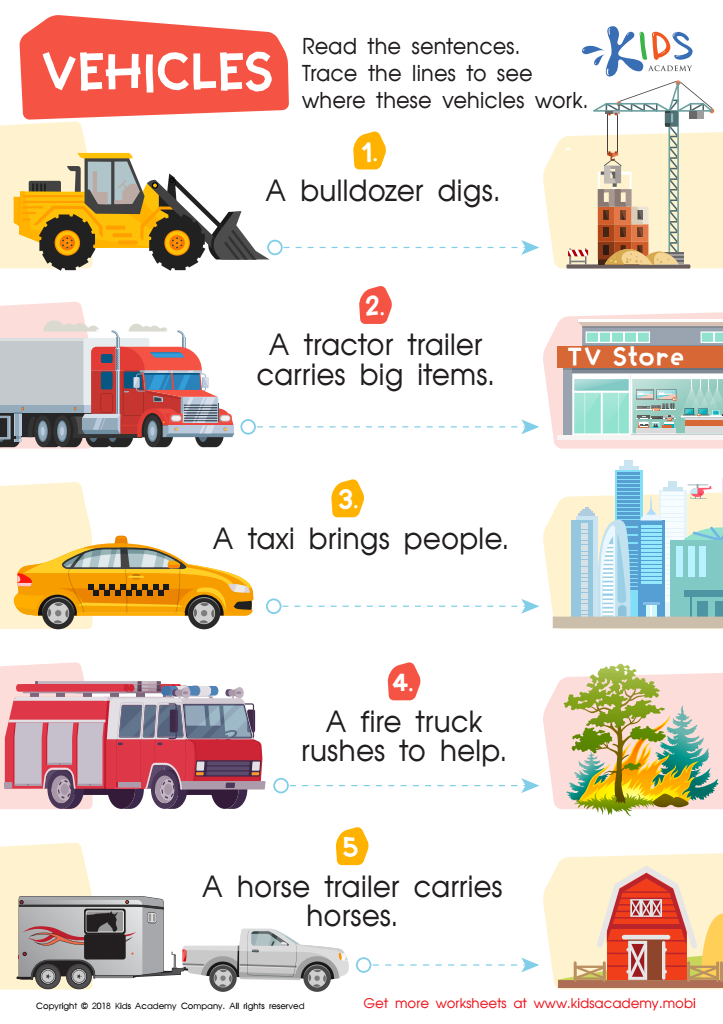

Vehicles Worksheet
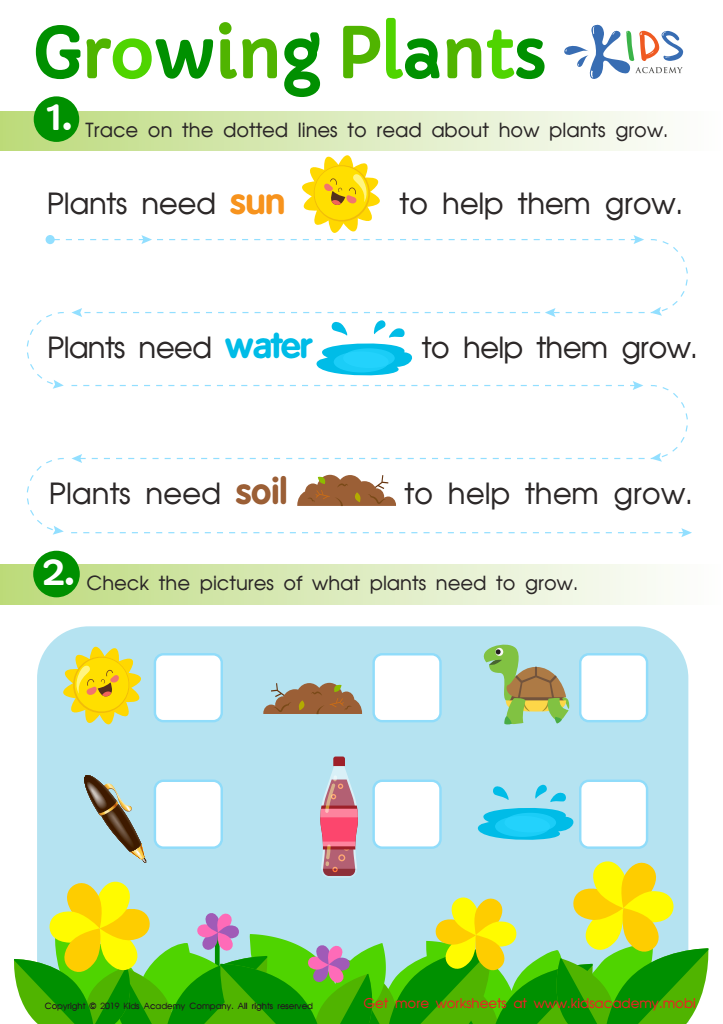

Growing Plants Worksheet
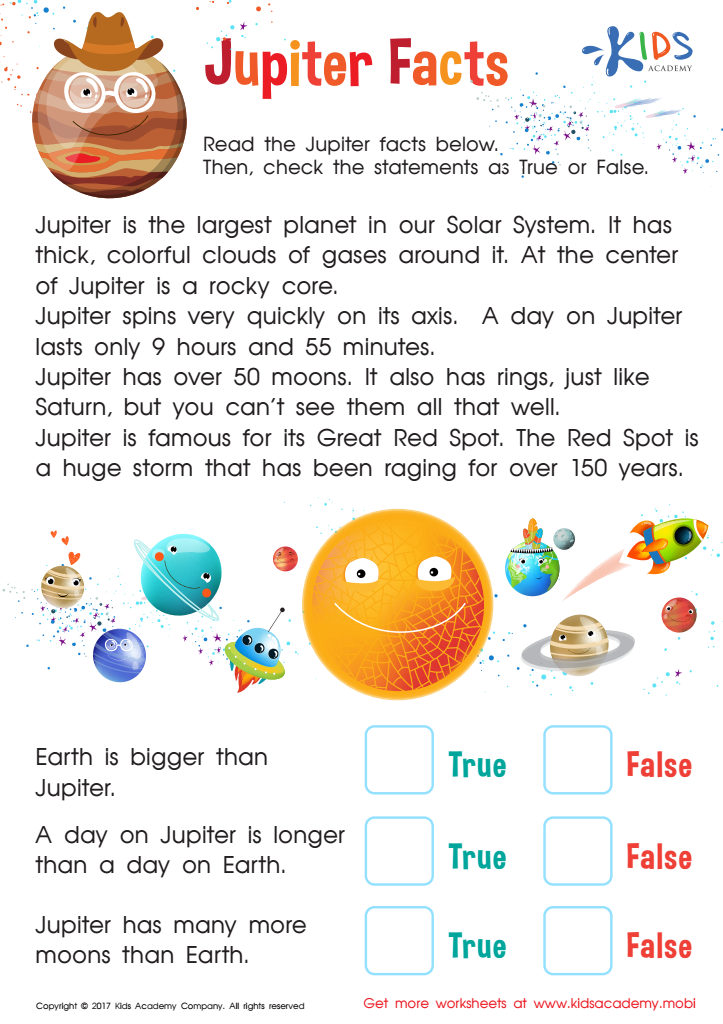

Jupiter Facts Worksheet


The Dentist Worksheet
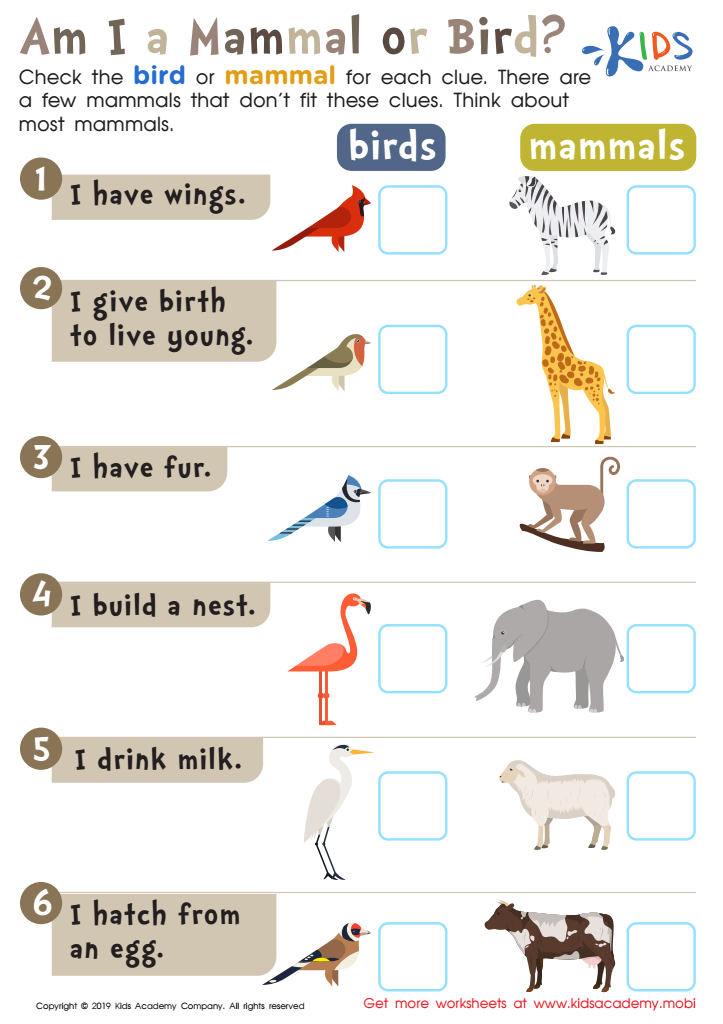

Am I a Mammal or Bird? Worksheet
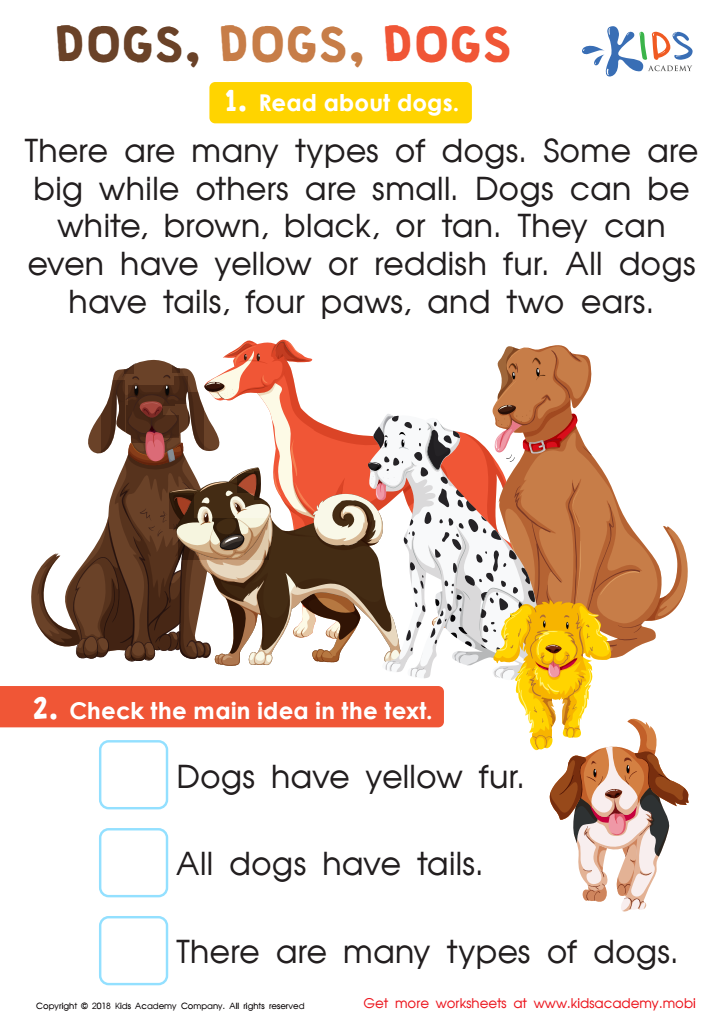

Dogs, Dogs Worksheet
Reading non-fiction for children aged 3-9 is essential for several reasons. Firstly, it fosters curiosity and encourages a love for learning. At this age, children are naturally inquisitive, and exposing them to non-fiction texts helps satisfy their desire to understand the world around them. It introduces them to real-life concepts, different cultures, animals, processes, and historical events, expanding their horizons beyond storytelling.
Secondly, non-fiction reading enhances critical thinking skills. Children learn to analyze information, understand the difference between facts and opinions, and draw conclusions based on evidence. These skills are foundational for academic success and informed decision-making later in life.
Furthermore, non-fiction builds vocabulary and concentration. Engaging with diverse text types exposes children to a broader range of words and phrases, enhancing their comprehension and articulation skills. This genre also caters to various learning styles, making it accessible for auditory, visual, and kinesthetic learners.
Finally, non-fiction can spark interests and passions that may last a lifetime. Whether it's in science, history, or the arts, early exposure allows children to explore and discover potential career paths or hobbies. Therefore, teachers and parents should prioritize reading non-fiction to cultivate informed, curious, and articulate children.

 Assign to My Students
Assign to My Students
















